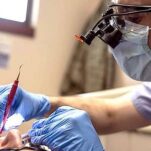Focused on Patient-Centered Success and Ongoing Improvement
At our clinic, success is measured by the outcomes that matter most to our patients. Your input is at the heart of our approach, from providing reviews and feedback to assessing the support you receive during your visits. We also consider practical factors, such as recovery times, to ensure the best possible care and results.
For less complex procedures, such as wisdom tooth removal or minor skin lesion treatments, we focus on the effectiveness of pain management, healing, and whether the procedure is appropriate for your needs. For more significant surgeries, such as head and neck procedures, we monitor progress closely to ensure there are no complications and that restorative work, such as tissue transfer, is successful in the long term.
Ultimately, success is about enhancing your quality of life, restoring function, and improving aesthetics. Cosmetic outcomes are also important, and we assess these where relevant to your care.
Learning from Research to Improve Care
We believe in continuously improving care through research and collaboration. Our clinic follows the ongoing work of the British Association of Oral and Maxillofacial Surgeons (BAOMS), alongside our internal studies, to keep up with global advancements in maxillofacial care.
From understanding complex trauma to improving the precision of facial surgery, we apply the latest research to our practice. Studies on imaging, 3D analysis, and virtual planning are helping us improve surgical outcomes, particularly when rebuilding the jaw or planning orthodontic surgery. Our team collaborates closely with dental specialists to ensure that the surgery and its impact on your facial profile are as accurate as possible.
Supporting You
The research we conduct extends beyond surgical techniques to how we can improve the overall experience for our patients. A clinical trial for head and neck cancer patients highlighted the importance of improving not only surgical outcomes but also the impact on your life during and after treatment. Communication is a key part of this, and we continually work on making sure you are fully informed and comfortable throughout your treatment.
We understand that the doctor-patient relationship is essential for your wellbeing, and we make every effort to ensure clear communication, address concerns, and provide the support you need. Our multidisciplinary team works closely together to give you the best care, and we are committed to constantly progressing in ways that benefit our patients.

